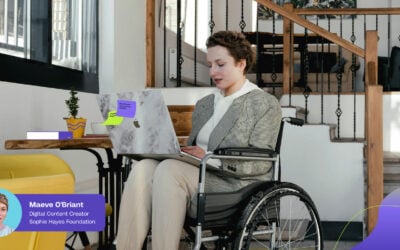
How do you land a job? Experience and education play a huge role. But if you have had experience working, you’d know that attitude also counts. It is one of those implied requirements of getting the job and keeping it.
Soft skills matter in the workplace. Your qualifications, when taken as a whole with your positive attitude and strong work ethic, can be your advantage in a competitive world.
Learn more about these skills that you can find in yourself, the value they hold, and how you can improve them to achieve your full potential.
What Are Soft Skills?
They refer to abilities and traits that help you manage your job and relationships in the workplace.
Such personal and interpersonal skills are not learned because they are innate and may need to be discovered or enhanced. For example, a study has found that age may increase emotional intelligence.
Owing to their nature, soft skills are intangible and not easily quantifiable. Recruiters measure a job candidate’s abilities to analyse, solve, handle problems through tests and questions.
Soft Skills vs Hard Skills
Hard skills are abilities related to or specific to a job. They are generally technical and practical.
These skills are acquired and mastered through education and practice. Hard skills are easier to learn than soft skills because the same rules or principles govern them.
Computer skills are a great example of technical skills. Basic skills include typing; familiarity with software or programs for word processing, spreadsheets, presentations; email; and social media.
Recruiters confirm hard skills through applicants’ résumé, certifications, and other supporting documents. They also employ skill assessment tests that are standardised by industry or job.
What Are Examples of Soft Skills?
There is a long list of soft skills. Here are some of the most sought-after attributes.
- Motivation
- Empathy
- People skills
- Teamwork
- Collaboration
- Leadership
- Mentoring
- Communication
- Listening skills
- Speaking
- Non-verbal communication
- Time management
- Analysis
- Critical thinking
- Problem-solving
- Creativity
- Troubleshooting
- Conflict resolution
- Adaptability
- Flexibility
- Negotiation
- Research
- Customer service
- Work ethic
- Punctuality
- Positivity/positive thinking
- Initiative
- Resourcefulness
Is Communication a Hard or Soft Skill?
Generally speaking, communication covers a set of soft skills that include active listening, presenting, and written and oral communication.
Communication skills get classified as hard skills if they are specific to the job, such as copywriting, editing, and transcription.
Why Are Soft Skills Important?
Employers want to see their workers thrive in their roles and achieve success, and they think that having the mindset and attitude is critical in the performance of duties.
Indeed, the demand for soft skills among workers has seen an upward trend in recent years. In the November 2015 issue of The Digest, a National Bureau of Economic Research publication, a paper noted the importance of social skills like teamwork in productivity and efficiency.
Interestingly, soft skills are not a new concept. The U.S. Continental Army Command held a Soft Skills Training Conference in 1972. Its definition of soft skills included inspecting troops, conducting studies, and other job-related skills that have to do with actions “affecting primarily people and paper.” The CONARC, in its report, recognised that little is known about soft skills vis-a-vis hard skills.
How to Develop Soft Skills
Can you learn soft skills? Given time and training, the answer is yes. You can develop them into strengths that will greatly benefit your current and future work.
- Identify the skills that you want to develop. Do you need to be more assertive? Being able to communicate your thoughts clearly boosts your confidence and assertiveness in turn.
- Be open to feedback. It can be difficult to hear about perceived weaknesses from managers, co-workers, or even friends, but they may have a point. Constructive criticism may just be the motivation to change for the better.
- Take advantage of workplace training programs. Nowadays, companies use virtual reality (VR) to develop leadership skills, customer service, and other soft skills among their workforce.
- Invest in yourself. Taking courses, attending seminars, and joining professional events help you grow. They can be venues to hone your skills in dealing with different people and situations.
Together with hard skills, soft skills make you a good employee and a great person, too. So make sure to update your résumé and highlight your soft skills as well.



